US exercises for nuclear war vs Russia violate ‘international, natural and moral law’
A report that a group of US military strategists are developing scenarios for nuclear war for the Pentagon amid rising tensions between the US and Russia over Ukraine was referred to as "psychotic" and "the ultimate violation of international, natural and moral law" by a New York-based political analyst.
The analyst, American radio host and journalist Don DeBar, was referring to a report published Saturday, January 29 in Newsweek entitled "As Russia-Ukraine Tensions Rise, US 'Stress Tests' New Nuclear War Plan."
"This is a massively irresponsible act, taken in a time of a manufactured crisis that does not involve one American life, one inch of American land, and yet risks engulfing all of those in the Armageddon of a nuclear holocaust,” DeBar commented to Press TV on Sunday.
“To call it irresponsible is, however, grossly insufficient. Risking nuclear war in the absence of a clear, present and existential threat is facially - from a clinical standpoint - psychotic, and from a social, political and legal perspective, the penultimate violation of international, natural and moral law. We are seeing the real possibility of human extinction being offered as the stakes in a game of Russian Roulette being played in service to the political and financial interests of a tiny, insane elite,” he added.
The Newsweek article began with the revelation that the US Strategic and Space Commands had jointly conducted "a large-scale 'Global Lightning' military exercise last March, based upon a possible Russian invasion of the Baltic states, a scenario that ultimately escalated to the use of nuclear weapons."
According to the Newsweek account, "Global Lightning is back" this week, "one of a handful of regular war games (being) held by the U.S. Strategic Command, the American nuclear command in Omaha, Nebraska."
Although the article states that "no one planned for the five-day exercise to come up in the calendar at this inopportune time," it adds, in another apparent coincidence, "this year the scenario involves China."
But the saccharine presentation of that otherwise frightening news did contain this admission: "Russia sees (even if we see nothing): decision-makers focused on the latest plan, nuclear command and control circuits opened and tested, new innovations and capabilities incorporated and practiced."
The latest nuclear war games take place in an environment of massively heightened tensions, an intensive US anti-Russian propaganda campaign, and deployment of forces and equipment throughout most of the former Warsaw Pact nations and three former Soviet republics that have joined NATO, with at least two others (Georgia and Ukraine) not yet admitted as formal members but who are involved in military cooperation, including hosting military assets, with the US and NATO.
There have also been reciprocal dismissals and departures of senior diplomatic personnel and, most recently, an immediate threat of termination of diplomatic relations.
Nevertheless, the US Strategic Command in Omaha is getting ready to conduct this latest "Global Lightning” exercise as the United States continues to ratchet up tensions with Russia, claiming it is about to invade not the Baltics this time, but another neighbor and former Soviet republic - Ukraine.
Pentagon chief Lloyd Austin claimed that Moscow has for months been massing troops along Ukraine’s border at a “consistent and steady pace.” He added that the troop build-up has been supported by Russian naval activity in the northern Atlantic and the Mediterranean Sea.
Gen. Mark Milley, chairman of the Joint Chiefs of Staff, told reporters that the US will not deploy troops as part of an offensive against Russia. But then added, “We strongly encourage Russia to stand down and to pursue a resolution through diplomacy. Armed force should always be the last resort. Success here is through dialogue.”
While nuclear war fighting is being practiced, there's also a new nuclear war plan that is being put through its paces.
Hans M. Kristensen, the director of the Nuclear Information Project for the Federation of American Scientists, sent along a copy of the cover page for the latest iteration of the war plan, updated to take into consideration the major shift underway in the Pentagon to refocus from the war on terror to "great power competition,” according to Newsweek. The document, which was released under the Freedom of Information Act, confirmed that the newest war plan "STRATCOM CONPLAN 0810-12, 'Strategic Deterrence and Force Deployment', Change 1, was issued on April 30, 2019. Kristensen said that the exercise "includes practicing operations during a trans-/post-attack nuclear environment, including reconstitution, redirection and targeting of STRATCOM forces."
The Newsweek report explains that it “means not just the initial use of nuclear weapons but the unfortunate assumption of repeated use (trans-attack) and then reconstitution of capabilities (post-attack) to use surviving weapons again. It's good old-fashioned nuclear warfighting.”
Nuclear fears mount
According to a January 27 report by Politico, current and former US and European officials and experts worry that the US and Russia, the world’s two largest nuclear powers, could stumble into nuclear confrontation if the situation in Ukraine spins out of control.
“At the point you unleash war in the modern environment, the one thing that is certain is the law of unintended consequences,” Des Browne, a member of the British Parliament and a former secretary of state for defense, told Politico. “If you are talking about a nuclear-armed environment, which is already fragile … then you are living in an environment [where] things could escalate quite quickly, by accident or miscalculation.”
“Nobody thinks any of these weapons are going to be used deliberately, but miscalculation is a significant chance,” added Browne, who chairs the Euro-Atlantic Security Leadership Group.
Current and former US nuclear security officials also share this concern.
“I think the Ukraine conflict is demonstrating that the nuclear escalation scenario we’re worried about is not out of sight,” said Patty-Jane Geller, an expert on nuclear strategy at the hawkish Heritage Foundation.
One former senior government official - who still works on nuclear security issues - seemed to confirm the danger, saying, “The Russians have something like 4,000 [tactical nuclear weapons] and they have an ‘escalate to win’ nuclear doctrine, which says ‘we use nuclear weapons first if the conventional conflict starts to spin out of our favor.’”
Nevertheless, the White House still seems intent on painting a dire picture of events as it gathers its forces for the nuclear war games.
The Bulletin of the Atomic Scientists last week cited the Ukraine crisis as contributing to its decision to keep the “Doomsday Clock” at 100 seconds to midnight, which is a horrible scenario.
Journalist DeBar offered as a reminder the fact that the senior government officials in the 1962 so-called Cuban Missile Crisis agreed on two facts - "that the world was indeed on the brink of a nuclear war, and that it was averted only by sheer chance. The US Secretary of Defense, Robert McNamara, the former Soviet Premier, Nikita Khrushchev, and the Cuban leader all agreed that it was only pure dumb luck that the world didn't destroy itself in October 1962."
He added, "Does anyone really believe that we can expect a repeat of that luck, especially considering that where President John F. Kennedy sat, we now have President Biden?"
A former US state senator has said that Washington does not comprehend the gravity of its provocative moves in siding with Ukraine.
“It is not clear that Western officials understand the gravity of what they are doing. It is unlikely that Russia can accept the stationing of nuclear weapons or even large-scale movements of NATO troops into Ukraine,” Richard H. Black, a former state senator from Virginia, told Press TV last month.
“Ukraine is not a part of NATO, but the alliance increasingly talks of war to help Ukraine recover areas that have seceded from it. If NATO were to make war against Russia, the chances of escalation into an all-out nuclear conflict would be high,” he added.
Iran warns UN about Trump’s ‘consistent pattern of unlawful conduct’
Iran vows ‘swift, decisive, comprehensive’ response to any aggression after Trump threat
Israeli-approved ‘traders’ allowed to profit from Gaza aid barred from humanitarian NGOs: Report
VIDEO | 'America for Americans': Who decides who belongs?
VIDEO | Beyond the battlefield: General Soleimani’s strategic and diplomatic legacy
VIDEO | Press TV's news headlines
VIDEO | Iran slams Trump’s meddling
VIDEO | Palestinians in West Bank fear more escalation as New Year arrives


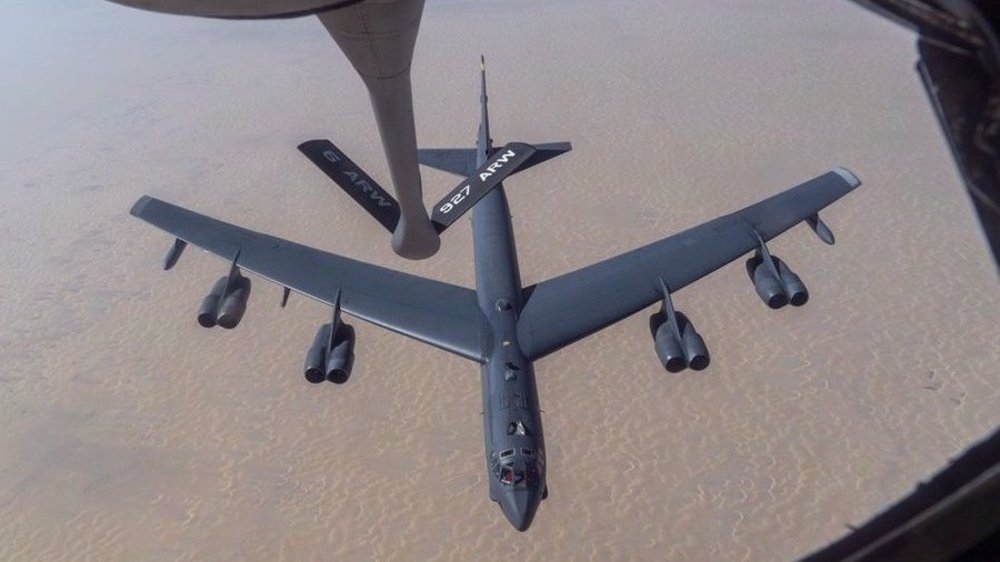
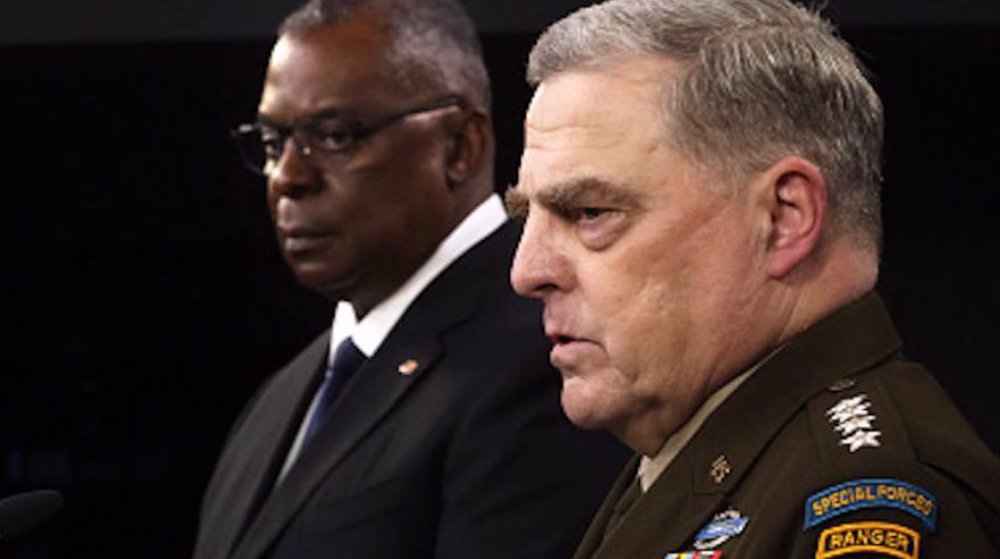
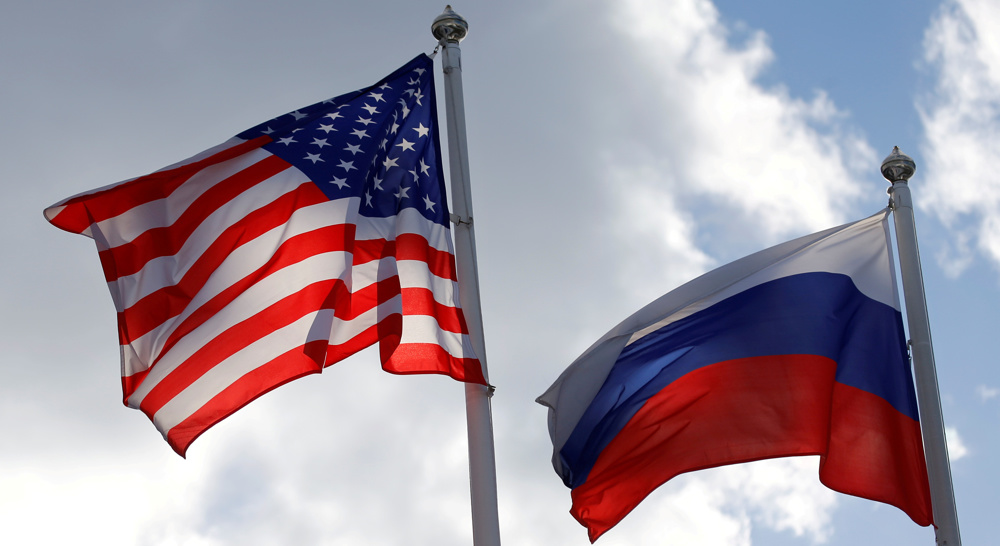
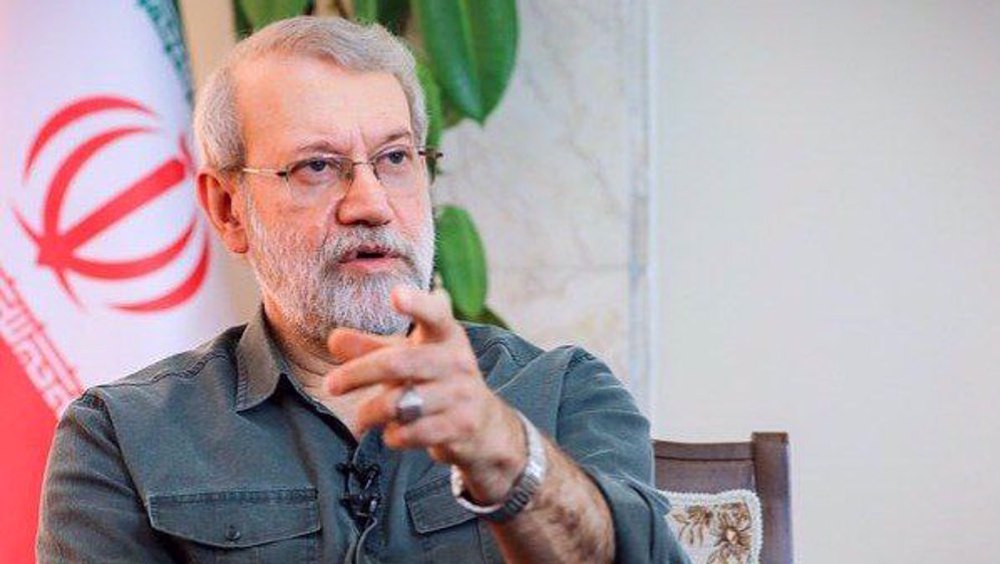
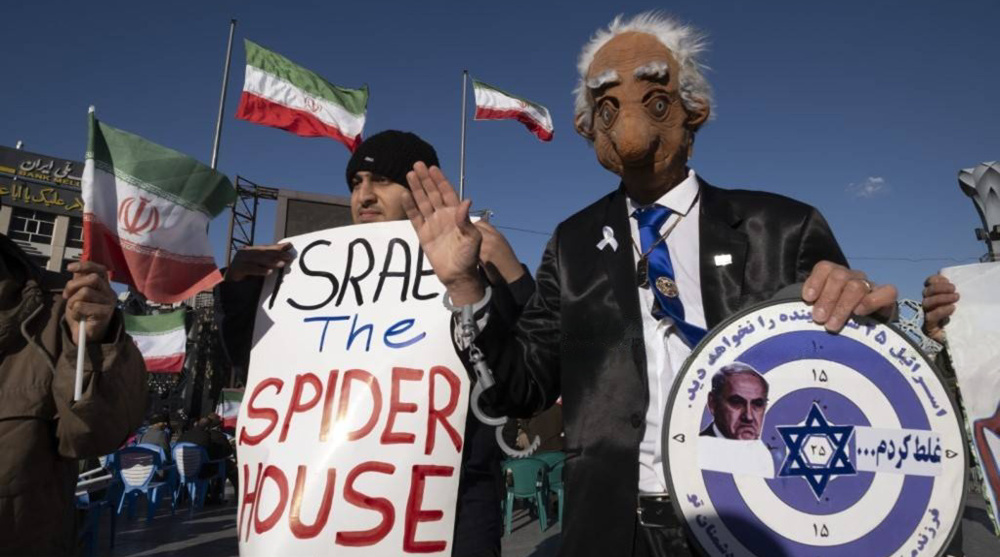
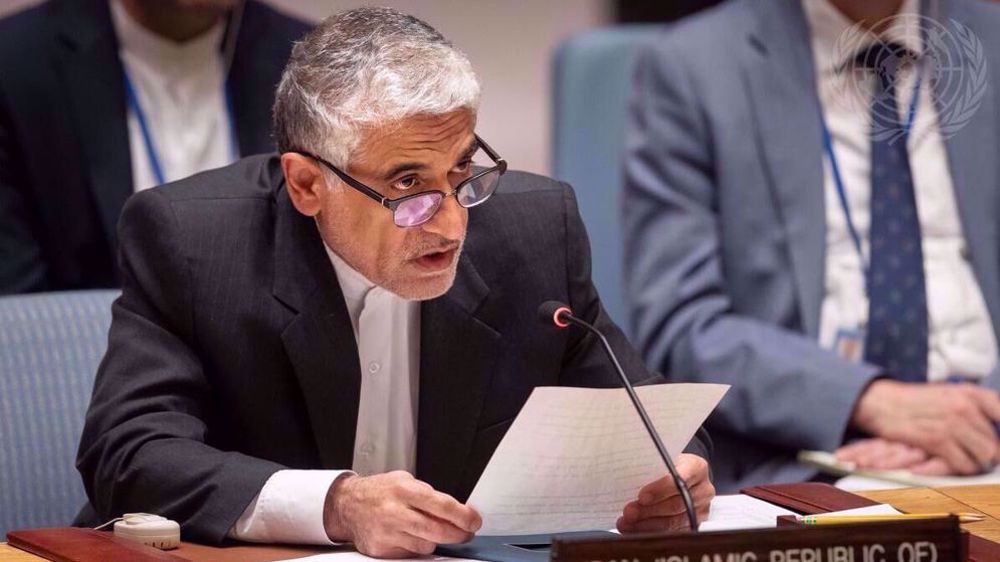




 This makes it easy to access the Press TV website
This makes it easy to access the Press TV website